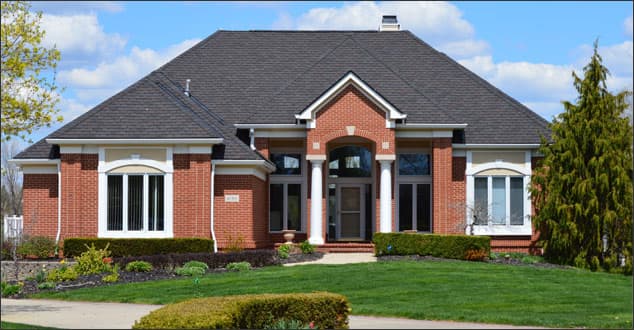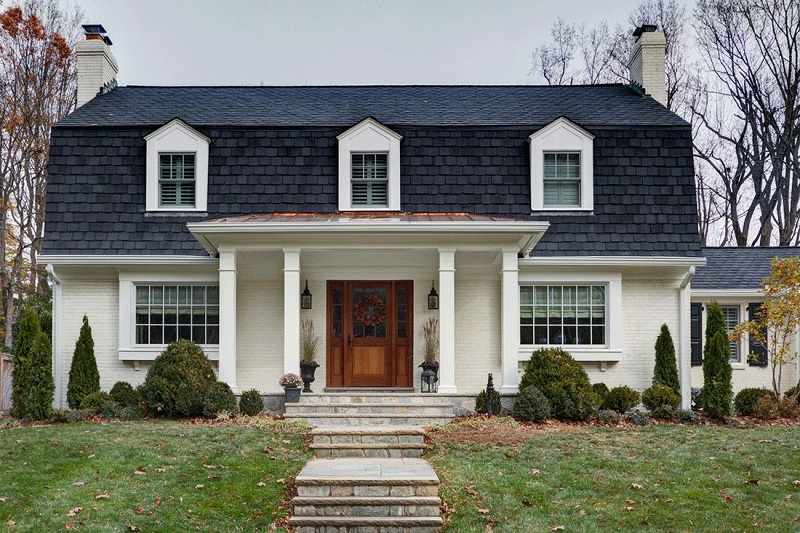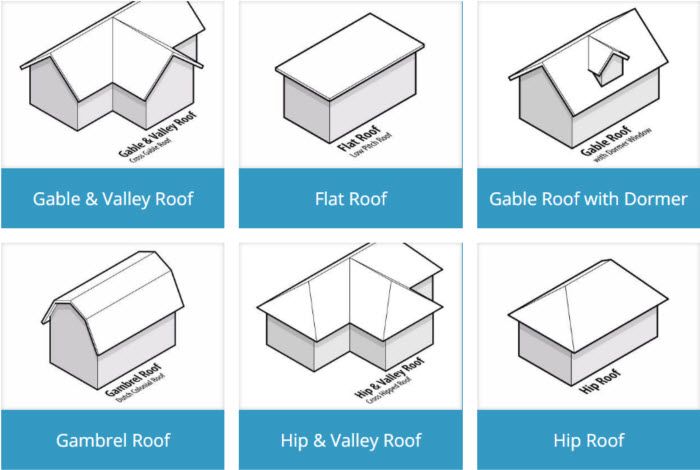Roof shapes are not merely functional components of a building; they are architectural elements that contribute significantly to a structure’s character and overall aesthetic appeal. Delving into the intricacies of the three primary roof shapes Gable, Hip, and Mansard—unveils a world of design possibilities that empower homeowners, architects, and enthusiasts to make informed decisions that go beyond mere functionality and common roofing issues.
The Gable roof, with its iconic triangular shape, is a Common roofing issue that not only defines the exterior of a building but also plays a pivotal role in determining its style. Its steep slopes and distinctive peaks create a classic and timeless appearance, making it a popular choice for various architectural styles.
Gable Roofs What are gable roofs?
What are gable roofs?
Gable roofs, characterized by their triangular shape, feature two slopes meeting at a central ridge. This classic design not only exudes elegance but also ensures effective rainwater drainage.
Advantages of Gable Roofs
Gable roofs offer ample attic space, excellent ventilation, and straightforward construction. Their simplicity makes them cost-effective and suitable for various architectural styles.
Challenges to Consider
While gable roofs excel in many aspects, they may struggle in high-wind areas due to their susceptibility to uplift. Proper bracing and reinforcement become crucial to addressing this concern.
Hip Roofs Exploring Hip Roofs
Exploring Hip Roofs
Hip roofs, with slopes on all four sides, converge at the top to form a gentle ridge. This design enhances stability and is particularly suitable for areas prone to high winds and heavy snowfall.
Benefits of Hip Roofs
Hip roofs provide enhanced durability, improved water drainage, and increased resistance to extreme weather conditions. Their uniform slopes contribute to an aesthetically pleasing look.
Stylish Living Under a Hip Roof
Homeowners appreciate the additional living space provided by hip roofs, allowing for creative interior design solutions and the possibility of adding dormers.
Mansard Roofs: Unveiling Mansard Roofs
Unveiling Mansard Roofs
Mansard roofs, featuring four slopes with the lower slopes steeper than the upper ones, create a distinct, almost vertical appearance. This design originated in 17th-century France and continues to evoke a sense of romance.
Advantages of Mansard Roofs
Mansard roofs maximize living space, offering versatility in room usage within the attic. Their design also facilitates the easy incorporation of dormer windows for added natural light.
Considerations for Mansard Roofs
While providing aesthetic appeal and functional space, mansard roofs can be more expensive to construct. Their intricate design demands skilled craftsmanship.
FAQ
How do I choose the right roof shape for my home?
Consider factors like climate, budget, and architectural preferences. Gable roofs suit various styles; hip roofs offer stability; and mansard roofs add a touch of romance.
Are gable roofs prone to leakage?
Proper construction and regular maintenance mitigate leakage risks. Ensuring quality materials and professional installation is crucial.
Can I add a skylight to a hip roof?
Yes, hip roofs accommodate skylights well, enhancing natural light and ventilation. Consult with a roofing professional for proper installation.
Are there eco-friendly roofing options for gable roofs?
Yes, gable roofs can support eco-friendly materials like solar panels or green roofing, contributing to sustainable living practices.



